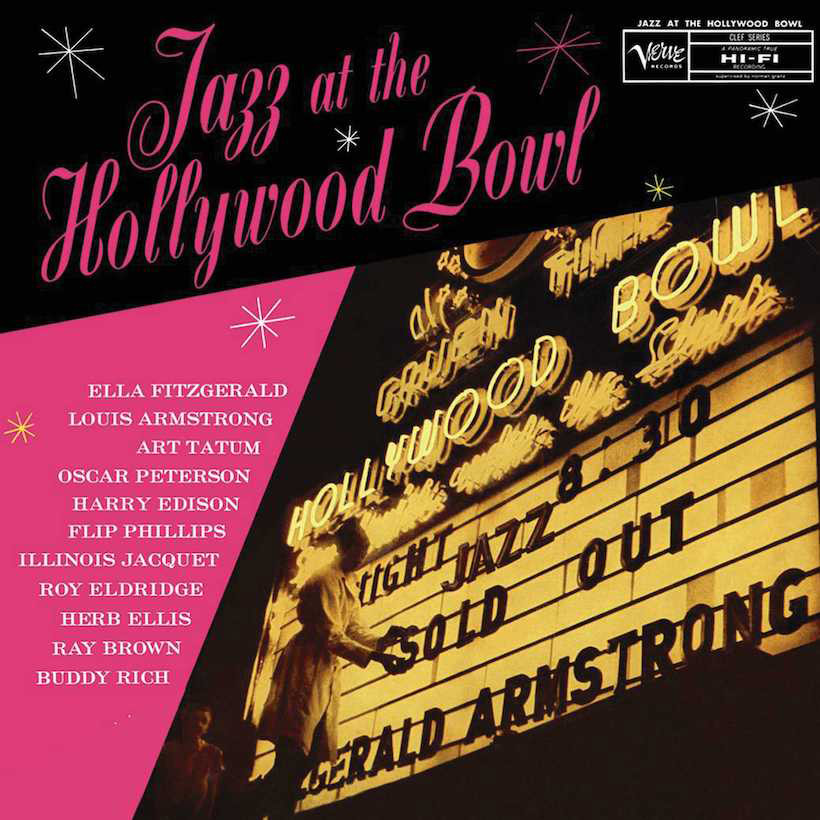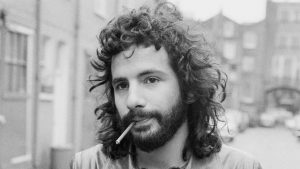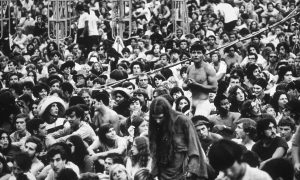On August 15, 1956 one of the jazz events of the decade took place, a concert that has been immortalized on record as Jazz at The Hollywood Bowl.
The concert was staged by Norman Granz and followed the fifth Jazz at the Philharmonic tour of Europe and preceded the Fall JATP tour of North America. The main stars of the Hollywood Bowl concert were Louis Armstrong and Ella Fitzgerald.
Louis is in “Herculean form,” as Ricky Riccardi one of the world’s leading experts on Louis Armstrong puts it. It’s impossible to argue. Ella, meanwhile, had signed to Verve at the start of the year and had just recorded her career-defining Cole Porter songbook album. Aside from Ella and Satchmo, the concert featured Art Tatum, Roy Eldridge, Harry “Sweets” Edison, Flip Phillips, Illinois Jacquet, Oscar Peterson, Herb Ellis, Barney Kessel, Ray Brown, Buddy Rich, Paul Smith, Joe Mondragon, Alvin Stoller, Trummy Young, Ed Hall, Billy Kyle, Dale Jones, and Barrett Deems.
Listen to Jazz At The Hollywood Bowl now.
The concert attracted a capacity audience of 20,000. When it was first released by Verve as a double album, Jazz At the Hollywood Bowl omitted Louis Armstrong’s performance for contractual reasons. It would be four decades until it was issued on CD.
The original concert opened in true JATP style with a jam from the All-Star band. Roy Eldridge and Illinois Jacquet, along with Oscar Peterson and his trio (Herb Ellis and Ray Brown), plus Harry Edison, Flip Phillips, and Buddy Rich. The three song set lasted close to 40 minutes and featured, “Honeysuckle Rose,” followed by a beautiful ballad medley of, “I Can’t Get Started,” “If I Had You,” and “I’ve Got the World on a String” Their closer was “Jumpin’ at the Woodside,” and they certainly did, with solo after blistering solo.
Art Tatum, a man who Granz considered a genius and the greatest pianist of all time, was next. “Someone to Watch Over Me,” “Begin the Beguine,” “Willow Weep for Me,” and “Humoresque” prove the point. Sadly it was 46-year-old Tatum’s second-to-last recording as he died three months later from uremic poisoning.
Ella closed the first half along with drummer Alvin Stoller, guitarist Barney Kessel, bassist Joe Mondragon, and pianist Paul Smith. She chose to open with two songs from the Cole Porter songbook: “Love for Sale” and “Just One of Those Things.” Later in the set she performed “I Can’t Give You Anything But Love,” which includes a brilliant impersonation of Louis Armstrong. Her set concluded with “Airmail Special” that has Ella scatting at the top of her game.
Two short numbers by the Peterson Trio began the second half of the concert. Both “9:20 Special” and “How About You” show what a beautiful lyrical pianist Oscar was.
And then it was time for Pops. His set was the longest of the evening and featured 13 songs. Performing alongside Armstrong are trombonist Trummy Young, clarinetist Ed Hall, pianist Billy Kyle, Dale Jones on bass, and drummer Barrett Deems, and they are all in spectacular form. Louis opens with his signature “When It’s Sleepy Time Down South,” followed by “Indiana,” “The Gypsy,” “Ole Miss Blues,” and “The Bucket’s Got a Hole In It.” Billy Kyle takes the lead on “Perdido,” then Ed Hall fronts “You Made Me Love You” before Armstrong does a brilliant reading of “Mack the Knife” that he had had a hit with a year earlier. Drummer Barrett Deems takes center stage on “Stompin’ at the Savoy” before Trummy Young’s “You Can Depend on Me.” The band finishes their solo set with a short and very intense version of “Mop Mop.”
Then it’s time for Pops and Ella. They perform the very first song they recorded together, “You Won’t Be Satisfied,” back in 1946. They close with “Undecided,” before the entire cast do a six minute version of “When the Saints Go Marching In,” which features a blistering solo from Armstrong, who was always at his best when surrounded by the best.
The following day both Ella and Louis were in the studio together. Granz had already planned this session and they were joined by Oscar Peterson’s trio, with the incomparable Buddy Rich on drums. When Ella and Louis came out of the studio, they emerged with a masterpiece But that’s another story altogether.




